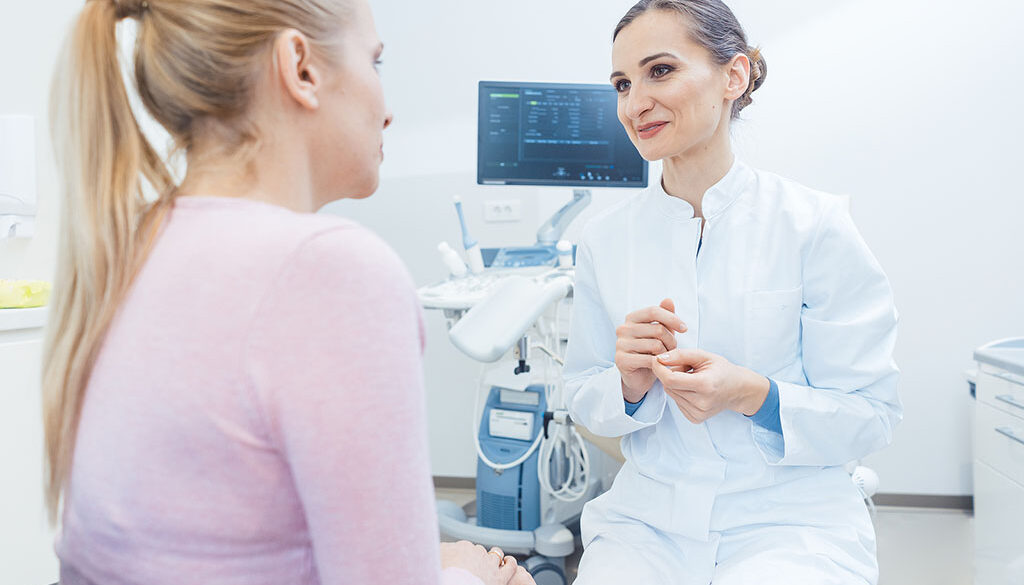Does a Pap Smear Test Hurt? We’ll Put Your Worries at Ease
Does a Pap smear test hurt? If you’re feeling anxious about having this essential test, that question may be top of mind for you. While everyone has a different tolerance for pain, you’ll be relieved to know that a Pap smear usually isn’t painful.
In this article, we’ll take a look at what a Pap smear test is for, how often you should get one, and ways to reduce potential discomfort when undergoing this critical screening test.
At Cary Medical Group, we believe a healthy life begins with regular wellness exams–and Pap smears are often an important part of that. If you have any concerns or you’re overdue for your annual physical, we invite you to contact us for an appointment and see why we’re the internal medicine provider of choice for the Cary area.
What Does a Pap Smear Test For?
A Pap smear or Pap test screens for cervical cancer by checking for abnormal cells on your cervix. The test can detect these cells before they become cancerous, and in most cases, those treated early for precancerous cells (a condition known as dysplasia), don’t develop cervical cancer. An abnormal Pap test result does not mean you have cervical cancer.
In addition to cervical cancer and dysplasia, a Pap smear also tests for HPV (human papillomavirus), a sexually transmitted infection that increases the risk of cervical cancer. Tests for other sexually transmitted infections like chlamydia and gonorrhea are performed separately, as are exams and tests for conditions such as endometriosis or Pelvic Inflammatory Disease (PID).
Does a Pap Smear Test Hurt?
During a Pap smear, your healthcare provider will gently scrape your cervix to collect cell samples. You may feel some slight discomfort, but you shouldn’t experience pain or cramping. The test takes less than 10 minutes, and any discomfort should ease quickly. Light bleeding after a Pap test is common and usually goes away within a few hours.
While a Pap smear may cause only brief, minor discomfort, there are certain circumstances under which the test can be more uncomfortable for some people. Underlying conditions such as endometriosis , vaginal dryness, and other vaginal health concerns, or previous sexual trauma, can create elevated discomfort.
Talk to your healthcare provider if you have concerns about your discomfort level so they can make accommodations to help you feel more at ease.
How Often Should I Get a Pap Smear?
How often you get a Pap smear will depend on your age and your health history, but in general, we recommend that women have a Pap test every three years beginning at age 21 and up to age 65. If you’ve had abnormal Pap tests in the past, or you’ve been treated for cervical cancer or precancerous changes, you should get tested more often.
If you are over 65 years old, ask your doctor about whether you should continue having Pap tests. No matter the circumstances, it’s important to speak to your healthcare provider about the specific testing frequency that’s appropriate for you, based on your age and your health condition.
How to Prepare for a Pap Smear
There are a few things you can do beforehand to ensure the most accurate results from your Pap test. For example:
- Refrain from vaginal sex for two days before the test.
- Don’t use tampons, birth control foams or jellies, lubricants, vaginal creams or douches for two days before the test.
- Schedule your Pap test for when you’re not on your period.
If you’re concerned about experiencing undue discomfort during your Pap test appointment, some of the following may help you feel better:
- Ask your healthcare provider if you can take an over-the-counter pain reliever before your appointment.
- Urinate before your exam to relieve pressure in the pelvic area.
- Bring a parent, partner or friend with you.
- Request that your healthcare provider use the smallest speculum size.
- Try deep breathing exercises to relax your pelvic muscles.
- Let your healthcare provider know if you’re experiencing pain so they can make suitable adjustments.
And be sure to ask your doctor for suggestions that may help relieve discomfort – after all, they have lots of experience performing these tests and they understand how to help you feel more at ease.
Can I Get a Pap Smear If I’m on My Period?
You should try to avoid having a Pap test during your period because menstrual blood can make it difficult to collect an accurate sample of cells from your cervix, which may lead to inconclusive results. Ask your healthcare provider what they recommend. While some providers will perform a Pap smear at the end of your cycle when bleeding is light, others may advise that you reschedule your test for when you aren’t on your period.
Cary Medical Group: Your Home for Compassionate, Patient-Centered Care
It’s critically important to keep up to date with your Pap smears. Pap tests are an essential part of a regular healthcare routine because they detect abnormal cells on the cervix early, before they develop into cervical cancer.
We understand having a Pap smear can be uncomfortable, and we’ll do everything we can to make you feel at ease during this important screening test. If you have questions about getting a Pap smear, including what’s involved and the right testing schedule for you based on your age and health history, we can help.
We invite you to contact us today to schedule an appointment.
The content within this article and others on this website is only for educational purposes and should not be considered as medical advice. For any questions or concerns, please consult with your healthcare provider.
===
Sources:
Cleveland Clinic:
https://my.clevelandclinic.org/health/diagnostics/4267-pap-smear
Healthline:
https://www.healthline.com/health/do-pap-smears-hurt
World Health Organization, “Endometriosis,”
https://www.who.int/news-room/fact-sheets/detail/endometriosis


